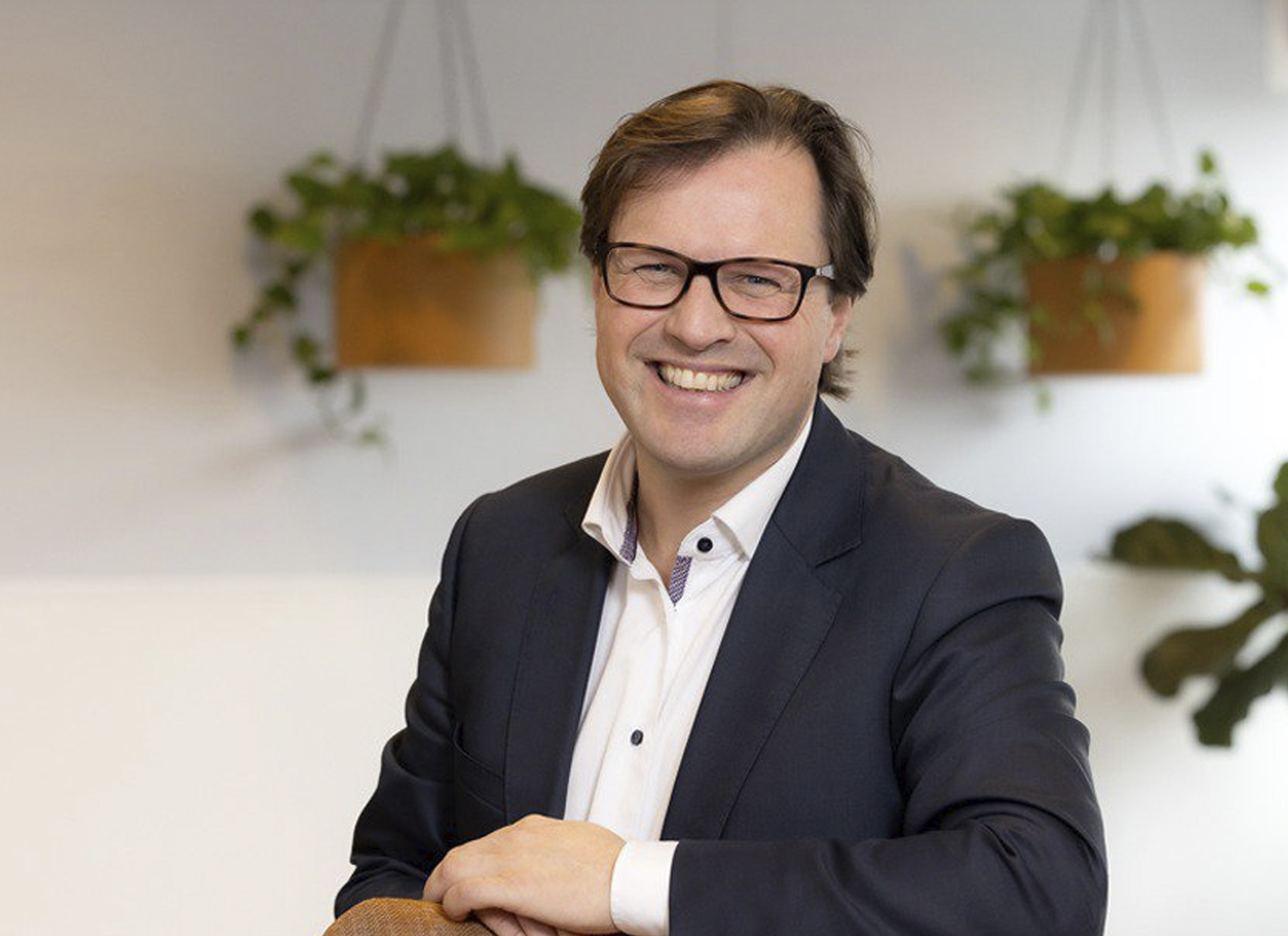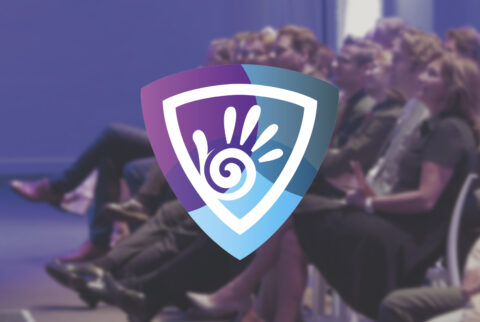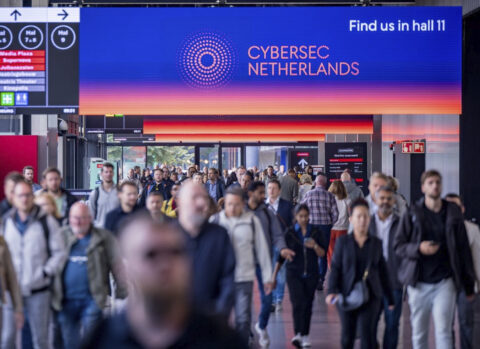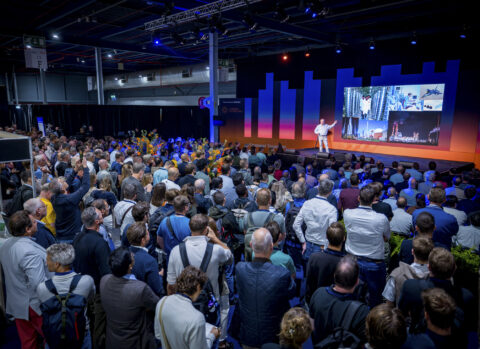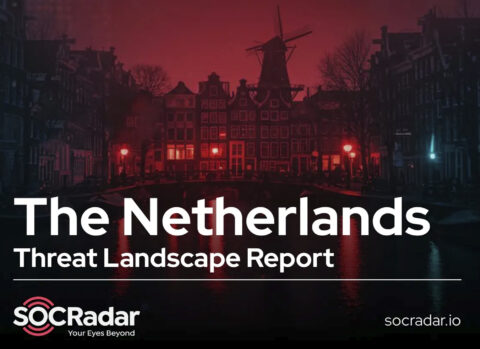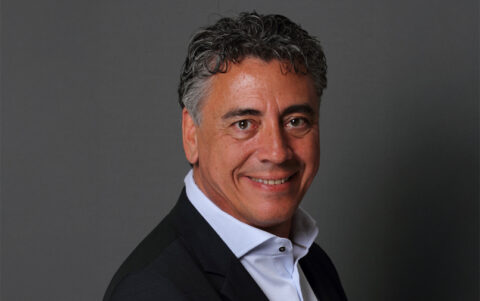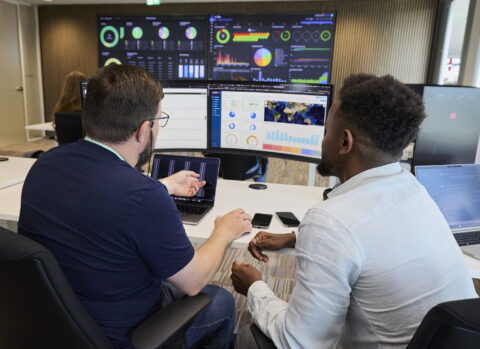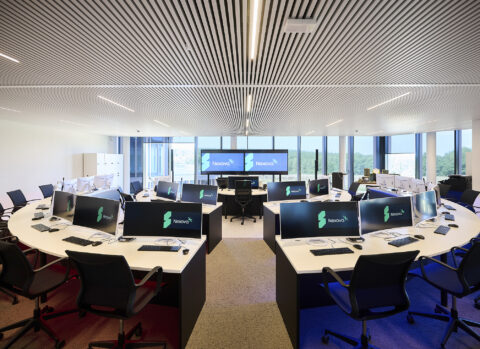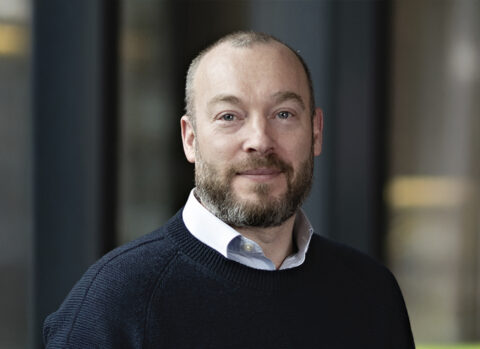Joris den Bruinen: “If every CISO in the Netherlands were to adopt one start-up, then we could really make progress.”
How do we build a digitally resilient Netherlands?
For Joris den Bruinen, Managing Director of Security Delta (HSD), technology is only part of the answer. In the latest Security Innovation Stories podcast, he argues for structural collaboration between government, business, and knowledge institutions. “You need all these professionals if you want to truly raise the level of cyber resilience in the Netherlands,” he emphasizes.
From trade show floor to meaningful encounters
The occasion for the conversation with Joris is Cybersec, the annual cybersecurity trade fair taking place again in September. HSD is a strategic partner for the second year in a row. Not because it’s a standard industry event, but precisely because it aims to be more than that.
“It’s not about filling a commercial trade show floor,” Joris explains. “We want a strong content-driven program, where the community comes together to be inspired. People should leave with a good feeling, thinking: this is a moment in the year I don’t want to miss.”
That community includes what he calls the Triple Helix: government, business, and knowledge institutions, but also cybersecurity companies and the hacker community. “You can only achieve cyber resilience if all these worlds learn to understand and work with each other.”
Building ecosystems together
The focus on connection doesn’t come out of nowhere. HSD has been building ecosystems centered on collaboration for years. “When we started, it was just people with a good story and a hands-on mentality,” Joris recalls. “Now we have a mature network in which we can push forward.”
An example? There are many, but if I have to choose, then this concrete case also illustrates our role, supported by an RVO instrument of Partners in International Business: the Olympic Games in Tokyo. Dutch companies such as Compumatica and Security Matters delivered their cybersecurity solutions to Japanese power plants. “It started with Dutch innovations, organized with end users, and eventually rolled out internationally. If it can be done in Japan, it can be done anywhere.”
OT security: the vulnerable foundation of our infrastructure
In such examples, OT security plays a key role. Whereas IT security focuses on digital systems, OT concerns the operational technology that controls physical processes (from power plants to water management).
“OT is often overlooked, while that’s where the major risks lie,” Joris warns. “You may have your own systems in order, but if someone in your chain is using equipment where the password is still ‘0000,’ then you’re still vulnerable.”
That’s why OT security is a central theme at Cybersec this year. With dedicated tracks, a stage, and even an OT Dome: a large white ‘igloo’ where experts engage in dialogue. “These are often separate worlds with their own language. You need to bring them together.”
Secure by Design: from responsibility to business model
The plea for OT security touches on a broader shift: responsibility for security must begin at the design stage of technology. Not only with the user but also with the producer.
“The Cyber Resilience Act, which will be introduced in the Netherlands next year, obliges producers to make their products secure by design,” Joris says. “If we now pilot this in sectors where we are already strong—such as water, energy, or horticulture—we can market that knowledge internationally. In this way, we turn digital security into an export product.”
Joris sees opportunities for smart grid applications, AI solutions for grid congestion, and products in manufacturing. “But only if they’re designed securely from the start. That way we innovate smartly and create economic value in a smart way.”
An invitation: connect, adopt, accelerate
Cybersec is more than an exhibition; it’s an opportunity to accelerate. HSD will be there with eight start-up partners, each offering innovative solutions for OT security, compliance, and cloud security. “You can literally see there what could become the future business model of the Netherlands.”
Joris therefore makes a concrete appeal to CISOs, CIOs, and IT managers: “If every CISO in the Netherlands were to adopt one start-up, we could test in practice whether it contributes to increased resilience. And then those companies can start scaling.”
That is ultimately the power of such an event, he says: “Suppliers, innovators, and end users come together. To understand each other, to collaborate, and to grow stronger together.”
Curious to learn more?
Listen to the full episode of Security Innovation Stories with Joris. Discover how the Netherlands can emerge not only safer, but also smarter and more innovative from the fight.
Register for free for Cybersec Netherlands 2025
As cyber attacks continue to threaten today’s tech landscape, this event is the premier platform for seasoned cyber security professionals and innovative start-ups to exchange knowledge and tackle cybersecurity challenges together. Organizations across all sectors will discover strategies to boost cyber resilience and safeguard critical assets. Don’t miss this chance to strengthen your cyber defenses—register for free now!
